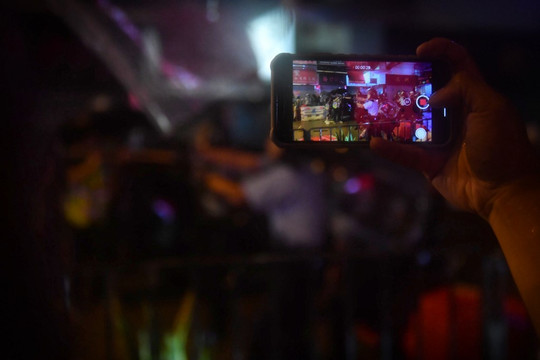Since the start of protests in Hong Kong in June, the spread of disinformation has been rife with major international social media platforms, including Facebook, Twitter and YouTube, caught up in a now well-documented and widespread disinformation campaign. The undersigned international organisations are monitoring the territory’s ongoing political crisis and have now come together to call for concerted action to stop the abuse.
The group has evidence that the disinformation campaigns taking place through the three major online platforms noted above may be just a fraction of a larger global campaign, with sites like the Chinese social media site Weibo falling outside the scope of most monitoring efforts.
In August, reports surfaced that Chinese propaganda operations had run promoted tweets about the Hong Kong protests through Twitter. At the time, Twitter claimed it had already uncovered more than 900 accounts originating from the People’s Republic of China that were “deliberately and specifically attempting to sow political discord in Hong Kong” and an additional network of 200,000 accounts that were part of a broader disinformation campaign.
Following greater scrutiny of its operations, in August Facebook announced that it had found several pages, three groups and five accounts that were involved in “coordinated inauthentic behaviour”. As many as 15,000 accounts followed at least one of the pages and 2,200 had joined one of the groups. Following moves by Facebook and Twitter to delete accounts, online video platform YouTube also disabled at least 210 channels hosting videos of the Hong Kong protests. Many of the accounts taken down referred to protesters as terrorists, accusing them of operating at the whim of foreign interests. Twitter said it disabled thousands of accounts that it had “reliable evidence to support that this is a coordinated state-backed operation.”
The crisis in Hong Kong has revealed to the world the potential capacity and reach of disinformation campaigns by China, which are part of a wider strategy to disrupt public narratives relating to China and to use media and social media for explicitly political purposes. The disinformation strategy extends the influence of Chinese systematic domestic State control over “news” under current regulations that require any news published by media outlets to follow the “reporting” lines of official media outlets.
The wider ramification of the disinformation campaign is a clear and determined effort to undermine independent media’s role in reporting the situation and to confuse individuals, including those most affected by the political crisis.
“The action to shut down disinformation accounts clearly linked to the Chinese authorities contributes to more transparency, reliability and accuracy in the social media space. However, the size of these companies and their underlying business models (i.e. reliance on monetizing the massive collection and use of our data) are also part of the challenge,” the undersigned organisations said.
The term “inauthentic behavior” is the term most commonly used by the companies to refer to malicious activity on the part of State actors. However, this term tends to simplify the real nature of the problem, which is very complex. There are, for example, serious questions about what standards these companies should apply when they take actions which essentially amount to censoring speech.
While discussions on the Hong Kong protests were initially silenced on Chinese social media, that situation has flipped with content about the demonstrations now trending on social media platform Weibo, video app Douyin, news app Toutiao and WeChat. According to whatsonweibo.com, the Weibo hashtag “Protect Hong Kong” (#守护香港#) has had over 5 billion views. The hashtag is promoted by Party newspaper People’s Daily, which also launched another viral hashtag, namely “Officers, We Support You” (#阿sir我们挺你#, with 300 million views). The discourse in these online spaces reflects a common thread to the effect that the Hong Kong Police Force is dealing with “thugs” or “bandits” (“暴徒”). A common stance expressed by Chinese netizens is that pro-democracy protesters are “damaging public security” in Hong Kong and are “dividing the nation”, as reported by What’s on Weibo.
“More coordination is needed to independently verify the scope of the problem of the disinformation accounts and campaign, which extends far beyond Facebook, Twitter and YouTube,” the undersigned organisations said. “A question arises as to how effective these efforts are in stemming such a large scale campaign?”
Action by the social media platforms largely came after the exposure, by outside observers, of critical issues around reporting on Hong Kong, for example that Chinese propaganda operations had run paid tweets about the protests on Twitter. Following this, Twitter announced that it will no longer accept advertising revenues from State-controlled news media entities. The policy will not apply to taxpayer-funded media and independent public broadcasters. Twitter has enlisted groups such as Reporters Without Borders and Freedom House to help it determine which media are covered by the ban, which will be a difficult line-drawing exercise.
“There is a critical need right now to track discourse online so as to block efforts by China and other countries which seek to spread disinformation online and to make provide greater support to independent media in its efforts to counter disinformation,” the undersigned organisations said.
Signed:
International Federation of Journalists
Hong Kong Journalists Association
Centre for Law and Democracy
For further information contact:
IFJ Asia-Pacific: Simon Beck: [email protected], +61 2 9333 0946
Hong Kong Journalists Association: [email protected]
Centre for Law and Democracy: Toby Mendel: [email protected], +1 902 431-3688

